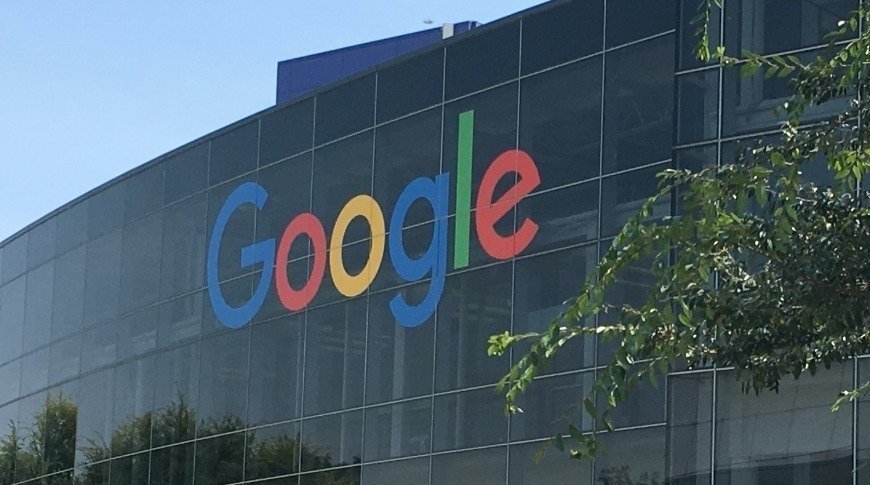Google kills plans to offer bank accounts through Google Pay
Google has decided not to move forward with plans to offer mobile-first bank accounts to Google Pay users, an initiative that would have helped solidify the tech giant's position as a serious finance market player.

Dubbed Plex, née Cache, the system was designed to present Google Pay digital wallet users access to augmented checking and savings accounts from a number of major financial institutions including Citigroup. Accounts were expected to arrive without monthly fees, overdraft charges or minimum balance requirements.
First unveiled in 2019 as a response to technologies like Apple Card and set to arrive in 2020, Google has unceremoniously killed the project, reports The Wall Street Journal.
Like Apple Card, Google's solution was meant to boost financial wellness by helping users stay ahead of bills and keep track of expenses via a digital dashboard. With access to user bank accounts, Plex would also assist in building wealth by setting savings goals.
The product was expected to arrive last year, but a planned rollout hit snags. After a number of missed deadlines and the departure of project lead Caesar Sengupta in April, Google decided to scrap the initiative, the report said, citing sources familiar with the matter.
In its place, Google plans on "delivering digital enablement for banks and other financial services providers rather than us serving as the provider of these services," a spokesperson told the publication.
Potential customers who were placed on a waiting list to be among the first to try out Plex will be offered other account options, Citigroup said. A source told The Wall Street Journal that about 400,000 people had signed up for early access to the service.
While adoption of Apple's Apple Pay, Apple Cash and Apple Card financial tools grows, Google's efforts in the sector have not enjoyed the same success beyond Android's default Google Pay system. Google intends to move forward with related initiatives, though it remains unclear if the company will circle back to bank account integration at some point in the future.
Read on AppleInsider

Dubbed Plex, née Cache, the system was designed to present Google Pay digital wallet users access to augmented checking and savings accounts from a number of major financial institutions including Citigroup. Accounts were expected to arrive without monthly fees, overdraft charges or minimum balance requirements.
First unveiled in 2019 as a response to technologies like Apple Card and set to arrive in 2020, Google has unceremoniously killed the project, reports The Wall Street Journal.
Like Apple Card, Google's solution was meant to boost financial wellness by helping users stay ahead of bills and keep track of expenses via a digital dashboard. With access to user bank accounts, Plex would also assist in building wealth by setting savings goals.
The product was expected to arrive last year, but a planned rollout hit snags. After a number of missed deadlines and the departure of project lead Caesar Sengupta in April, Google decided to scrap the initiative, the report said, citing sources familiar with the matter.
In its place, Google plans on "delivering digital enablement for banks and other financial services providers rather than us serving as the provider of these services," a spokesperson told the publication.
Potential customers who were placed on a waiting list to be among the first to try out Plex will be offered other account options, Citigroup said. A source told The Wall Street Journal that about 400,000 people had signed up for early access to the service.
While adoption of Apple's Apple Pay, Apple Cash and Apple Card financial tools grows, Google's efforts in the sector have not enjoyed the same success beyond Android's default Google Pay system. Google intends to move forward with related initiatives, though it remains unclear if the company will circle back to bank account integration at some point in the future.
Read on AppleInsider

Comments
I invest in Bitcoin but what I don’t like is that it’s too volatile. With U.S. currency your $100 is worth maybe 99.998 or 100.001 tomorrow but with Bitcoin your $100 might be worth $96 tomorrow then $101 later that night.
El Salvadore just made it an official currency of their country (along with the U.S. dollar).
They felt that they were being terrorized by U.S. banks. Bitcoin was their way of escaping from that system.
https://www.cnbc.com/2021/10/02/googles-pivot-away-from-bank-accounts-shows-why-finance-is-a-tough-industry-for-tech-giants.html
Unlike Apple however, all the "Nos" are very public.